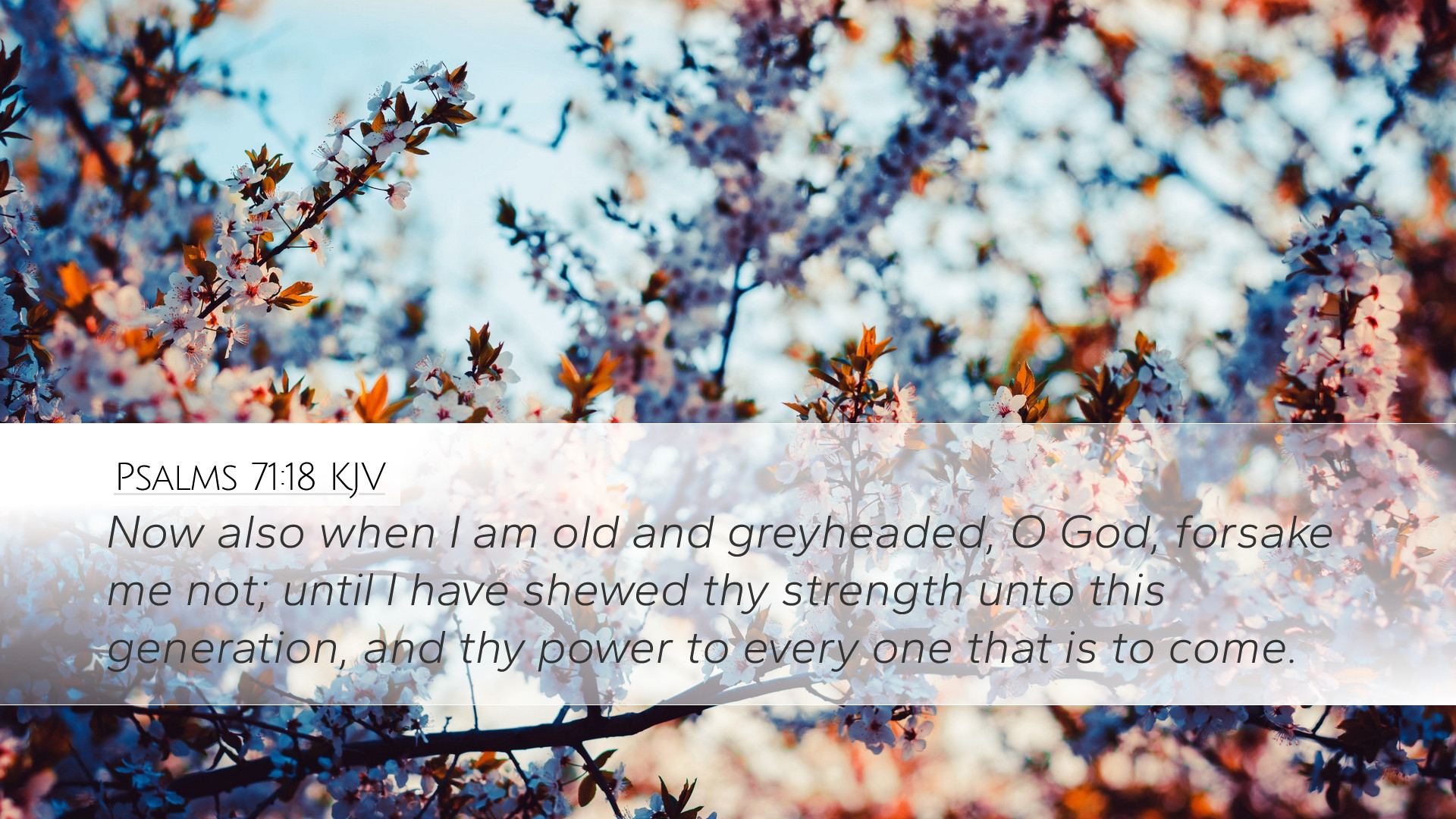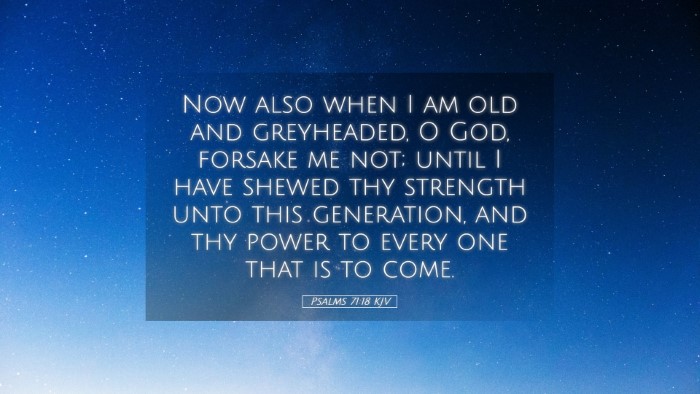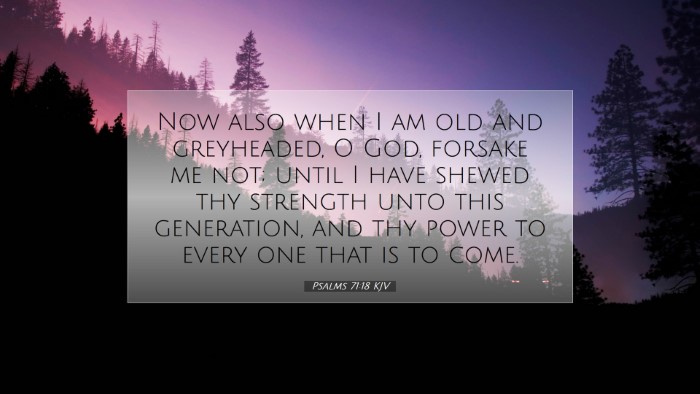Bible Commentary on Psalms 71:18
Psalms 71:18 (KJV): "Now also when I am old and grayheaded, O God, forsake me not; until I have shewed thy strength unto this generation, and thy power to every one that is to come."
Introduction
This verse encapsulates a prayerful plea from an older psalmist who confronts the reality of aging while showing steadfast faith in God. It elicits profound insights about the relationship between the believer's life experience, divine providence, and the responsibility toward the future generations. Various public domain commentaries offer reflections that enrich understanding of this poignant text.
Contextual Understanding
The context of Psalm 71 is essential for a proper interpretation. The psalmist, believed to be an elderly believer, shares his experiences of trust in God from youth to old age. Commentators emphasize that this psalm is a reflection of a life lived in faith, marked by the trials and protection of God throughout the various seasons of life.
Matthew Henry’s Commentary
Matthew Henry highlights the themes of dependence and hope in God's faithfulness that permeate this psalm. He notes that the prayer of the psalmist, especially in his old age, reflects a profound sense of need for God’s presence. Henry remarks:
“He prays that God would not forsake him, not only that he himself might be comforted, but that he might still be of service to God's people.”
According to Henry, this response showcases a concern for the community and an understanding that God’s role in one’s life extends beyond individual existence. The aging individual desires to testify of God’s might and strength to those who follow.
Albert Barnes’ Notes
Albert Barnes expands on the implications of the psalmist's request not to be forsaken in his old age. He reflects on the phrase “until I have shewed thy strength unto this generation.” Barnes suggests that the psalmist recognizes the urgency of communicating God’s strength and faithfulness to the youth of his time:
“It is to be observed that the psalmist is not only concerned about his personal state but also about the legacy of faith he leaves behind.”
This commentary underlines the intergenerational responsibility of believers to proclaim God’s works and encourages a life lived with intentionality and purpose, particularly in the later stages of life.
Adam Clarke’s Exposition
Adam Clarke provides a theological reflection on the verse by emphasizing the importance of God’s presence throughout all stages of life. He notes that the words express an implicit trust in God’s ability to sustain and empower the believer:
“The old man is not to be cast away. As long as he remains, he has a purpose, a mission to convey God’s power and grace to the younger generations.”
Clarke’s insights particularly resonate with the notion that in aging, one gains wisdom and experience that constitutes a powerful testimony. The act of sharing this divine strength becomes a critical calling.
Theological Implications
The overarching theological theme rooted in Psalms 71:18 is that of God's unchanging nature amidst the transient experiences of human life. Through the lens of these commentaries, a few key implications surface:
- The Continuity of God's Faithfulness: The psalmist’s plea for God's presence reflects a continuous thread of divine faithfulness from youth into old age.
- Empowerment for Witness: Aging is not a cessation of purpose but an opportunity to empower the next generation with testimonies of God’s faithfulness.
- The Intergenerational Nature of Faith: Each generation bears the responsibility to hand down their experiences and understanding of God's character to those that come after.
Practical Applications
For pastors, theologians, and scholars, the message in Psalms 71:18 serves as a compelling narrative on aging in the life of faith:
- Encouragement in Ministry: Pastors should encourage congregants, especially older members, to share their faith stories, reinforcing the notion that their voices are vital to spiritual formation.
- Community Engagement: Churches might build ministries specifically engaging the wisdom of older generations to mentor younger believers.
- Legacy Planning: Teaching on the importance of crafting one’s spiritual legacy should be integrated into church education programs.
Conclusion
Psalms 71:18 articulates a deep-seated yearning not only for God’s continued presence but also for the purpose that accompanies a life dedicated to serving Him, even in old age. The insights from Matthew Henry, Albert Barnes, and Adam Clarke underscore the beauty of faith across generations. Ultimately, this verse stands as a testament to the enduring relationship between God and His people—a relationship marked by the imperative to pass on stories of His strength and power as an act of worship and service to the upcoming generation.


